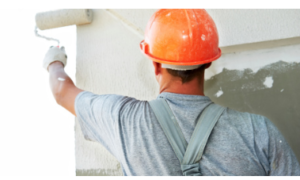Your equipment and buildings that form the core of your business need to be protected with high-quality paint for optimal functioning and long-term savings. Industrial painters specialise in protecting machines against corrosion, keeping them running at peak condition while saving you money.
Ten10 industrial painters Auckland may also work outside regular business hours to avoid inconveniencing employees and customers with paint fumes and dust, while experienced industrial painters will offer warranties.
Requirements
 Industrial painters must have the flexibility and agility to adapt to various situations and environments while working with multiple tools ranging from spray equipment and rollers to selecting the appropriate ones for any given job and calibrating them correctly. Punctuality is also essential, demonstrating reliability and an exemplary work ethic.
Industrial painters must have the flexibility and agility to adapt to various situations and environments while working with multiple tools ranging from spray equipment and rollers to selecting the appropriate ones for any given job and calibrating them correctly. Punctuality is also essential, demonstrating reliability and an exemplary work ethic.
Professional Ten10 industrial painters Auckland utilise high-performance coatings designed for function over form. These long-lasting coatings can withstand heat, chemicals and other environmental hazards while being VOC-free and LEED approved – helping protect the environment. Professional industrial painters are typically hired by industrial companies to paint their buildings and equipment during off hours of business operations – often needing to work outside normal business hours.
Qualifications
Industrial painters apply paint, varnish, lacquer, enamel, and other finishes to industrial structures to protect them from corrosion while improving durability and appearance. Industrial painters must work safely while following technical instructions when applying their paints.
An experienced industrial painter must possess a high school diploma or GED certificate and be familiar with various painting tools. Furthermore, they should understand how specific paints and coatings perform under different environments and circumstances.
Cleaning surfaces before layering paint, using viscosity cups and thickness gauges to verify paint mixes, then applying previous coatings with masking tape and chemical rinse. They must always arrive promptly for their projects to meet deadlines on schedule.
Job Duties
Industrial painters are responsible for applying various industrial liquid coatings to various surfaces according to their employer’s and customers’ specifications. Their job responsibilities include cleaning surfaces before layering paint, using different painting techniques depending on surface type, and using equipment like viscosity cups and thickness gages to ensure materials are mixed appropriately.
Ten10 industrial painters Auckland must have extensive knowledge of various painting tools and equipment, such as automated spraying machines. Furthermore, they should understand proper safety protocols, as paint can pose health and environmental hazards when mishandled. Their work is crucial as they protect vital structures like bridges and ships against corrosion while increasing lifespans.
Work environment
Painting and coating professionals use paint, varnish, rustproofing solutions or other liquid treatments to finish products. In addition, they prepare surfaces for painting by sanding, cleaning or covering parts that do not require painting.
Industrial painters work in various environments, such as factories and construction sites. Since some of their jobs can be highly dangerous, they must understand safety practices and equipment well enough to do their jobs safely and without injury to others. Some jobs may even require full PPE suits with integrated face air supply respirators and gloves of various types to do well.
As well as their technical skills, painters must possess excellent communication abilities. They should be able to listen and respond appropriately to client, co-worker and manager feedback, meet deadlines and adhere to managers’ directives as required; all this must be achieved without fail.
Salary
There are a variety of factors that will affect an industrial painter’s salary, such as their location. Industry experience will affect hourly and yearly pay averages, while type of work also plays an influential role.
Industrial painters are typically responsible for painting large equipment and machinery’s interior and exterior surfaces and performing maintenance or repair duties. Furthermore, they must feel confident working at heights or in tight spaces.
Industrial painters’ salaries depend on location and company size; however, certain states and cities offer higher compensation. There are ways an industrial painter could increase their salary, such as switching jobs or receiving further education.
An industrial painter must clean up the work area after the paint has been applied. They must use the right cleaning products to ensure that the environment is safe. They must also follow the appropriate safety rules when working with different types of paint.